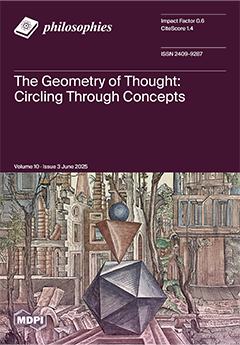Divine rebaptism occurs when a deity renames an entity with a proper name
N*, which is pronounced differently or is orthographically distinct from the proper name
N this entity previously had.
Genesis 17:5 and 17:15 illustrate this phenomenon or alleged phenomenon while
[...] Read more.
Divine rebaptism occurs when a deity renames an entity with a proper name
N*, which is pronounced differently or is orthographically distinct from the proper name
N this entity previously had.
Genesis 17:5 and 17:15 illustrate this phenomenon or alleged phenomenon while raising two questions not yet addressed. First, the identity question: Are those named “Abram” and “Sarai”, respectively, identical to those named “Abraham” and “Sarah” in
Genesis? Second, the semantic question: What picture of the semantics of proper names best accounts for the divine rebaptisms portrayed in
Genesis? This essay begins by motivating these questions; it indicates that they should—in an interdisciplinary fashion—appeal to
Pentateuch specialists and philosophers interested in the semantics of proper names. Then, a case is made for the claim that though
Genesis does not provide sufficient evidence to answer the identity question, it indicates a response to the semantic one: that especially in
Genesis 17:5 and 17:15, this text points to gradation semantics. This is the view that proper names have the properties of being meaningful, indirect, flaccid, flexible, and lexically univocal in distinct degrees, depending on their context of use.
Full article





